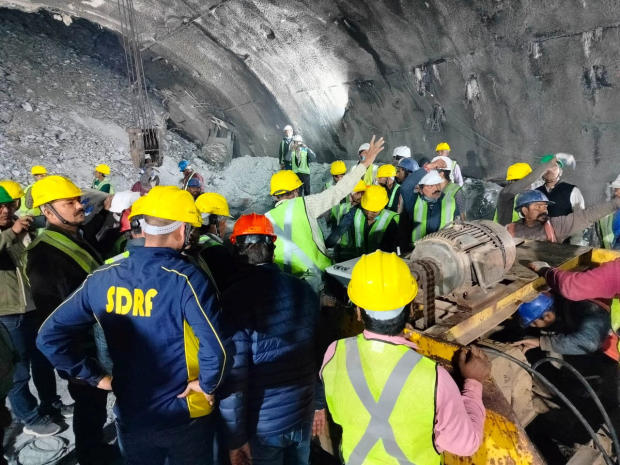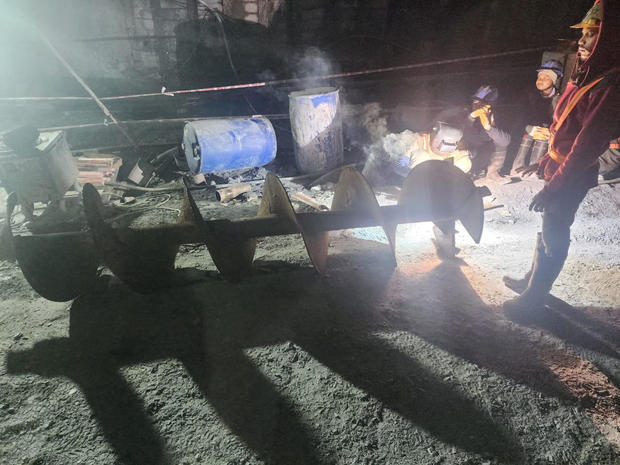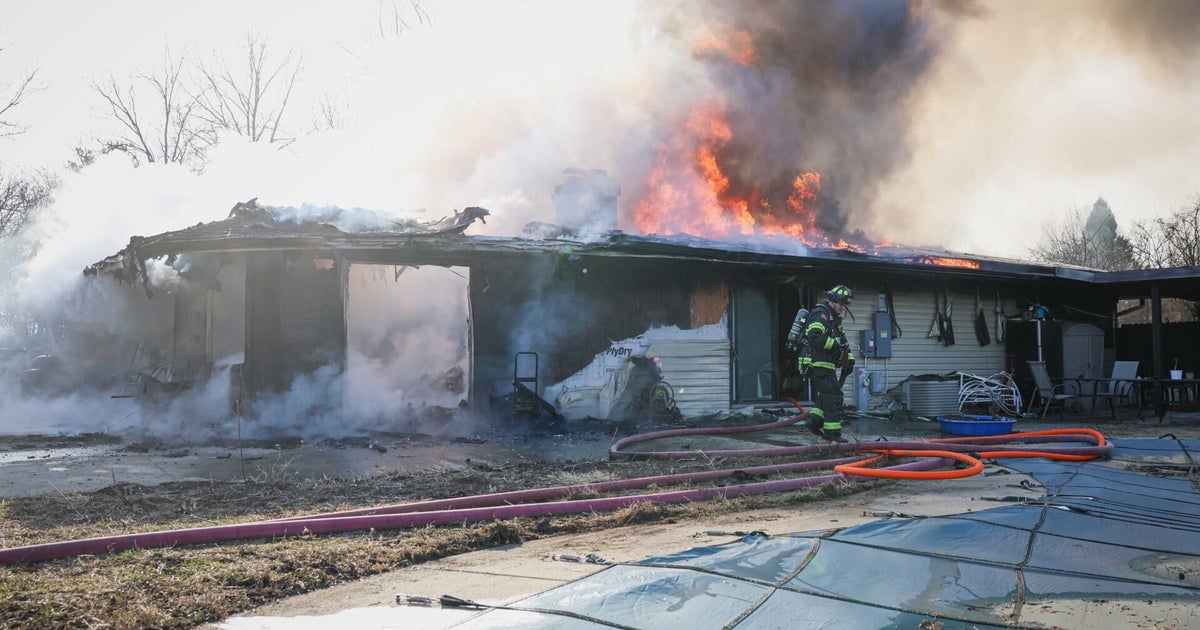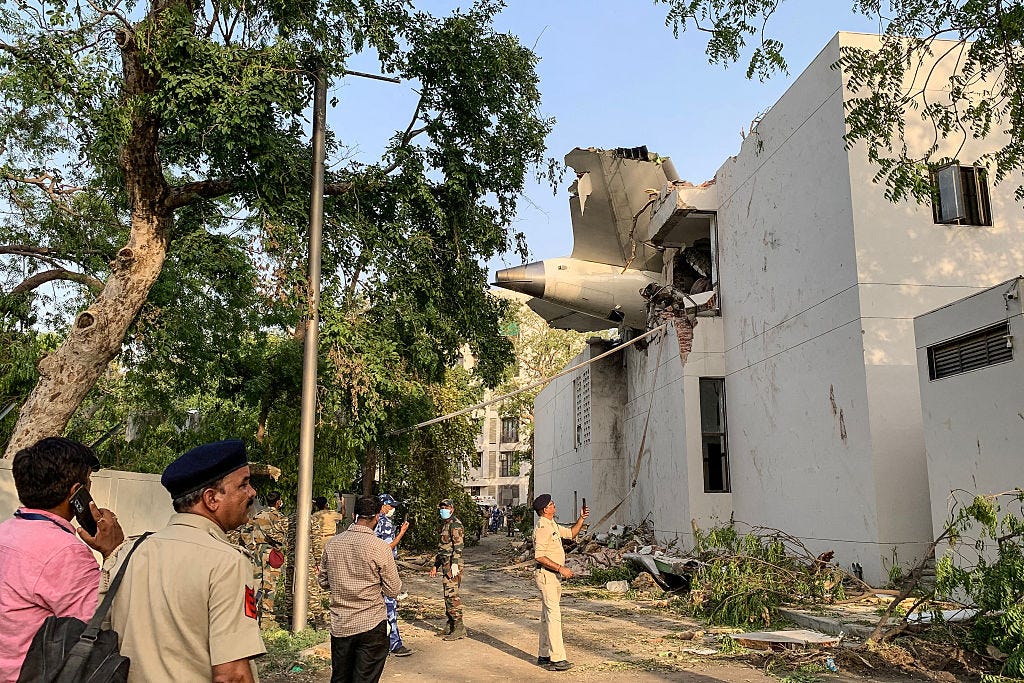India tunnel collapse leaves 40 workers trapped for days, rescuers racing to bore through tons of debris
New Delhi — Rescue workers were battling Tuesday to reach 40 workers who had already been trapped for three days in an under-construction tunnel that partially collapsed in India's Uttarakhand state. The workers were left stuck in the tunnel after the partial collapse early on Sunday, but officials have said they're safe and being supplied with food, water and oxygen through a pipe.
Part of the three-mile highway tunnel caved in around 5:30 a.m. local time on Sunday. Rescue workers quickly tried to reach the men by clearing the pile of debris with large excavators, but the machines couldn't clear an escape route as more debris kept falling from the unstable terrain.
"This is a very challenging job because as we clear debris more debris is falling from the ceiling, so we are also trying to stop that by using cement," Mohsen Shahidi, a senior National Disaster Response Force officer, was quoted as saying by India's national ANI news agency.
On Tuesday, the rescuers decided to switch tactics. They started boring horizontally through the debris to insert a steel pipe, roughly a yard in diameter, with the goal being for the trapped workers to use the conduit as an escape route to crawl through.
The drilling machine was still tearing through the debris pile on Tuesday evening. It was hoped that the tactic — known in construction and rescue work as trenchless tunnelling — would reduce the risk of further structural instability and collapses as it does not involve significant earth excavation.
Rescuer workers said Tuesday that it was difficult to estimate how long it might take to get the escape pipe in place.
What caused the tunnel to collapse in the first place remained unclear, and federal Indian authorities formed a team of experts to investigate the accident.
Work on the road tunnel, which is intended to connect the towns of Silkyara and Dandalgaon, began in 2018. It was supposed to be completed last year but was delayed.
The tunnel is part of a federal government infrastructure project dubbed the Char Dham highway, which is aimed at improving connectivity between four popular Hindu pilgrimage sites in India's northern Himalayan region.
The project has faced criticism, including over hundreds of houses that were damaged by subsidence along the construction route.
Some environmental experts have also warned that the ecologically sensitive Himalayan region, which is prone to earthquakes, landslides and flooding, should not be disturbed for such large-scale infrastructure projects.





